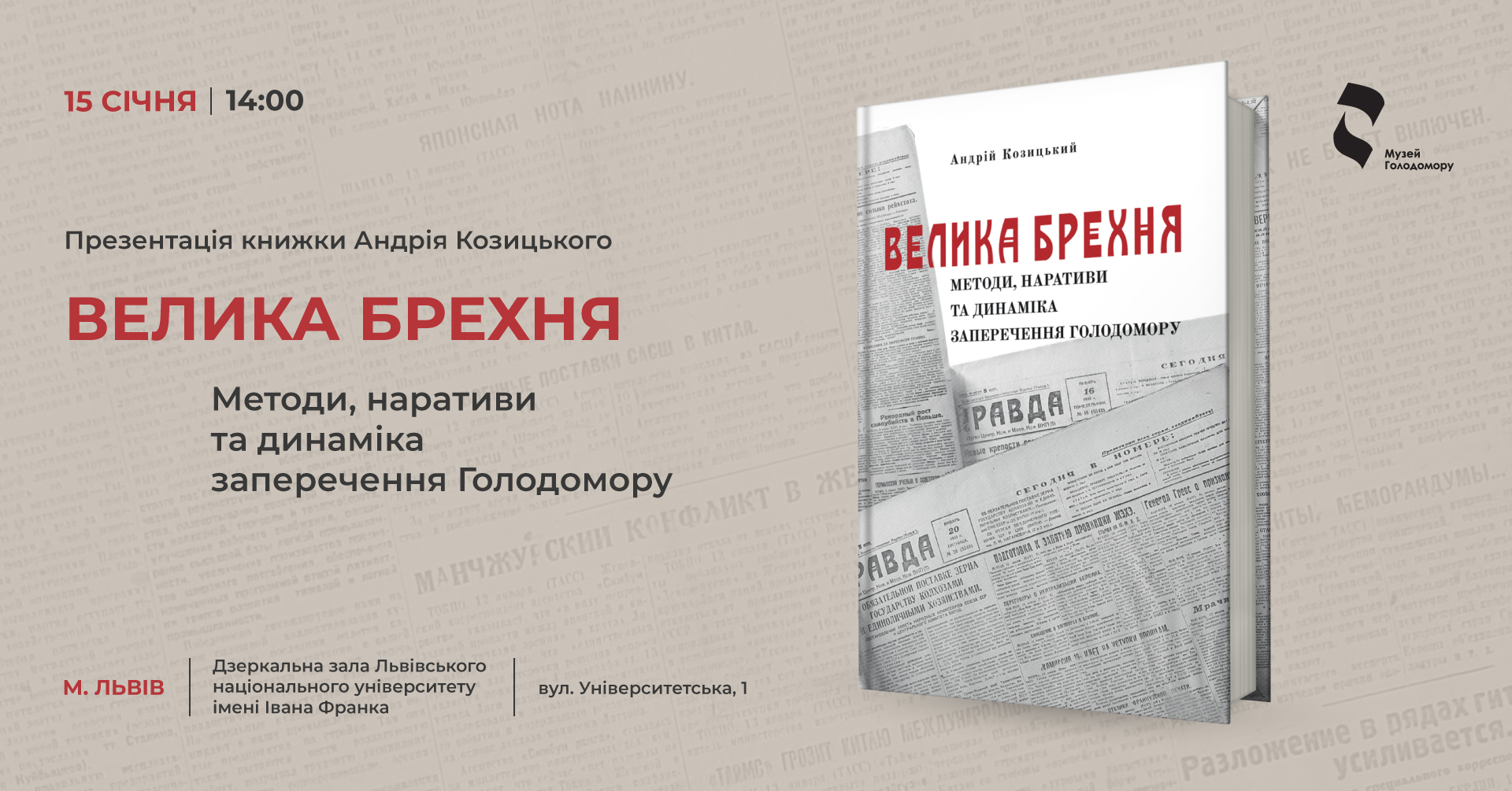Presentation of Andrii Kozytskyi’s book “The Big Lie”
On 15 January 2024, the presentation of Andrii Kozytskyi’s book “The Big Lie. Methods, Narratives and Dynamics of Denial of the Holodomor” will be held in Lviv.
The presentation will be attended by the Acting Director General of the Holodomor Museum, Lesia Hasydzhak, and author of the book, Candidate of Historical Sciences, senior researcher of the Holodomor Museum, Andrii Kozytskyi.
The American researcher of the theory of genocidal violence, Gregory Stanton, proposed a scheme of eight stages of genocide. The last of these stages is denial. If we look at the history of such crimes, we will see that all the perpetrators denied that they had committed genocide. And the communists who committed the Holodomor were no exception.
The book covers in detail the history of the denial of the Holodomor of 1932–1933 in Ukraine, which began simultaneously with its implementation. In order to conceal the genocide of the Ukrainian people committed in the early 1930s, and later to make Ukrainians forget about it, the leaders of the USSR consistently denied the fact of the Holodomor. After the collapse of the Soviet Union, Russia became the main opponent of spreading information about the Holodomor and the organiser of the campaign against recognising it as an act of genocide.
Andrii Kozytskyi’s book traces the stages that the denial of the Holodomor went through during the period of 1932–2022, highlights the main methods and models of this denial, analyses the narratives that were spread earlier and continue to be spread now by opponents of recognising the Holodomor as an act of genocide. The research material is presented in a broad historical context and demonstrates parallels between the methods and narratives of denial of the Holodomor and the practice of denial of other genocides of the 20th century.
“The main promoter of the Holodomor denial campaign in the 20th century. was the top leadership of the USSR. In the 21st century denial of the genocidal nature of the famine of 1932–1933 in Ukraine became a crucial component of the politics of memory in the Russian Federation. Based on considerations of political expediency, the leaders of the Soviet Union, and later Russia, considered it dangerous for their power to reveal the truth about the Holodomor-genocide committed in 1932-1933 and therefore tried to conceal it or replace it with fabricated narratives. The ultimate goal of denying the Holodomor was to completely suppress the memory of the events of 1932–1933 in Ukraine from human consciousness. Those who committed the genocide of the Ukrainian people, as well as their political heirs, tried to create a situation where even falsified answers to questions about the Holodomor would not be necessary, because no one would ask them,” Andrii Kozytskyi notes.
The publication is intended for historians, political scholars, journalists, and anyone interested in the history of the Holodomor, as well as the informational component of Russia’s hybrid war against Ukraine
When: January 15 at 2 p.m
Where: Mirror Hall of the Ivan Franko National University of Lviv (Lviv, 1 University Street, Lviv)
We invite the media and everyone!
